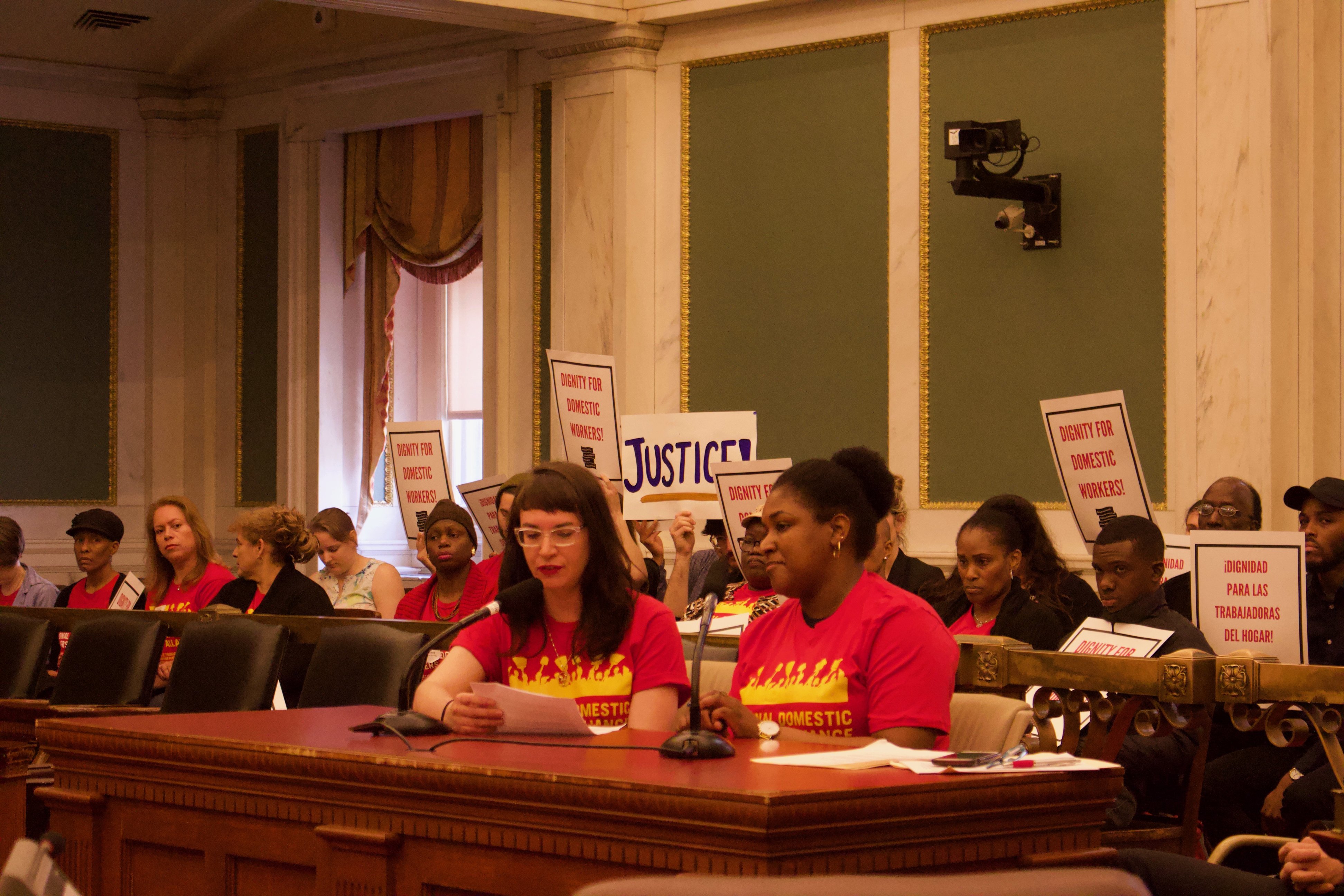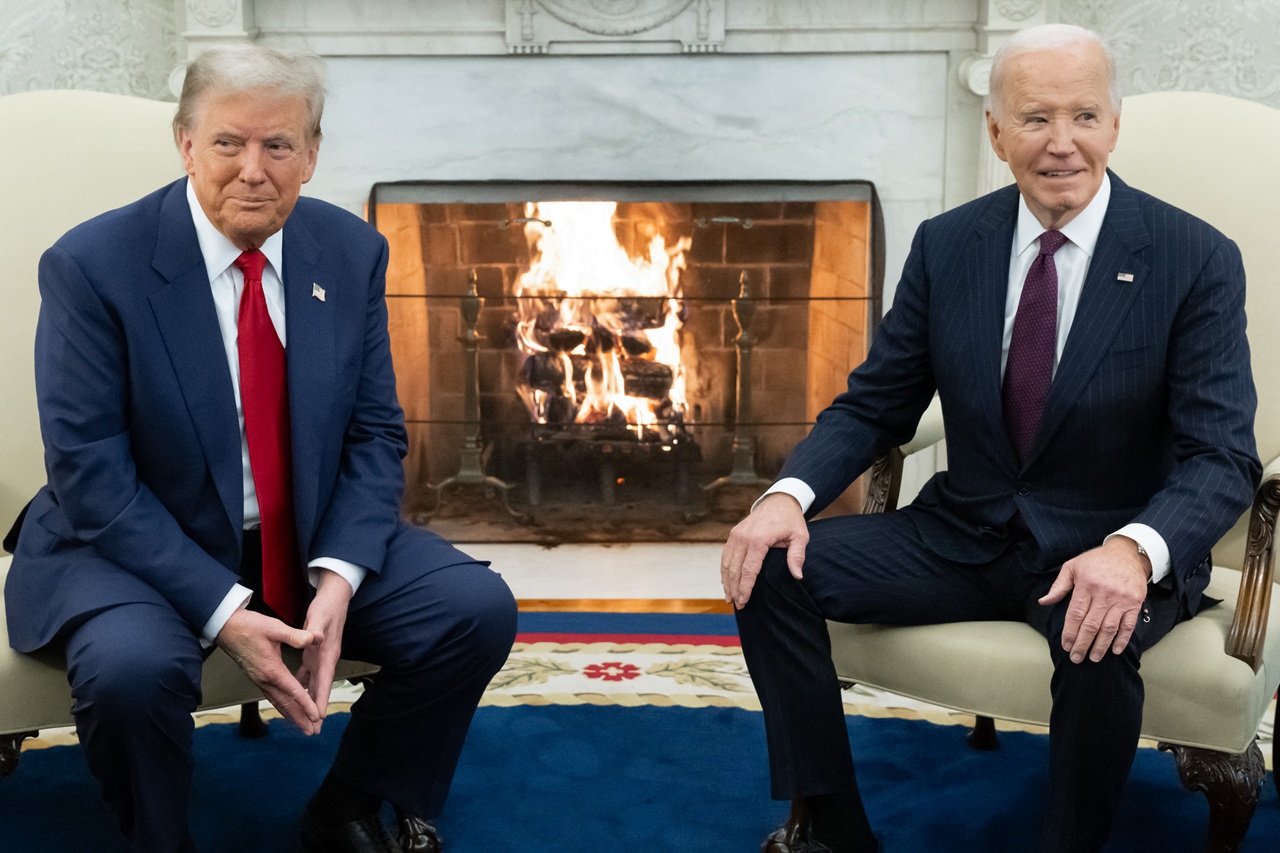
City Council holds hearing on domestic workers’ rights
Betania Shephard, a domestic worker from the Dominican Republic, was one of several domestic workers who testified on Monday at the first formal hearing held by Philadelphia City Council on domestic workers’ rights and protections.
“I don’t have any benefits, I don’t have a written contract, vacation, or paid sick time. In addition, in the city of Philadelphia, I have few legal rights and this is why I’m fighting for a Domestic Worker Bill of Rights,” said Shephard, through an interpreter.
“The most important thing to me is that we have support and someone has our backs when we experience discrimination and threats,” she added, noting that especially for those workers who are undocumented, legal support is necessary to protect them from retaliation on the part of employers if they risk speaking up about wage theft and other injustices experienced on the job.
Shephard is part of the Pennsylvania Domestic Workers Alliance, which is calling for a Domestic Workers Bill of Rights to extend workers’ rights protections to the more than 16,000 house cleaners, nannies, and caretakers working in Philadelphia.
Workers and organizers argue that legislation is vital to ensure that domestic workers have legal recourse if employers commit wage theft, subject domestic workers to subpar working conditions, or discriminate due to race or other aspects of workers’ identities, among other workplace abuses. So far, nine states and the city of Seattle have passed a Domestic Workers Bill of Rights.
Shephard and other domestic workers affiliated with the Pennsylvania Domestic Workers Alliance, along with Deputy Mayor of Labor Rich Lazer, Rue Landau, executive director of the Philadelphia Commission on Human Relations (PCHR), Allison Julien, co-founder of the National Domestic Workers Alliance, and others, testified in support of the resolution before the Labor and Civil Service subcommittee, emphasizing the need for greater protections for domestic workers and adequate enforcement mechanisms.
Landau highlighted steps that the Philadelphia Commission on Human Relations has taken so far to be able to take on cases where domestic workers have been discriminated against while on the job under the Fair Practices Ordinance, but acknowledged that the current laws do not extend full protection.
“Domestic workers do have rights in Philadelphia, they do have rights to be free from discrimination,” Landau said, noting that PCHR accepts the cases of domestic workers who have experienced discrimination on the job as part of the Fair Practices Ordinance, which Landau and her team amended to expand its protections to domestic workers in 2011.
However, the Fair Practices Ordinance still does not prohibit discrimination for hiring and firing practices for domestic workers. This exception is intended to allow families to be able to hire caregivers and nannies who speak a language that their children or parents speak, or match a family’s cultural profile. Landau said that PCHR would continue to navigate application of that law according to its original intention.
Allison Julien, co-founder of the National Domestic Workers Alliance, which represents the 2.5 million domestic workers in the United States, testified that through the national organization’s advocacy and activism, they have seen local and state legislation have a significant impact in ensuring rights for domestic workers.
“Our national movement is following Philadelphia’s progress to pass legislation that can become a standard bearer across the country,” said Julien.
Julien, who worked as a professional nanny for over 25 years, worked to win the New York Domestic Worker Bill of Rights in 2010, the first in the country, which she said has led to “dramatic improvements in working conditions.”
The New York legislation also led to the creation of a domestic worker legal clinic, which was a product of a co-enforcement model adopted for the legislation, with government agencies and community-based organizations working together to educate and provide outreach to domestic workers and assist in filing claims. Councilmember Helen Gym highlighted the legal clinic as a possible enforcement model for Philadelphia to adopt in her questioning of Deputy Mayor of Labor Rich Lazer.
CONTENIDO RELACIONADO
Erika Almirón, executive director of immigrant rights’ organization Juntos and at-large candidate for City Council, said that through her work at Juntos and her own personal experiences of accompanying her mother as she cleaned houses, she has seen firsthand how domestic workers endure abuses in the workplace and often work extra hours that they are not compensated for.
Some cases, she noted, “can only be described as indentured servitude.” Almirón said that wage regulations, advanced notice of scheduling, benefits, and more are among the protections and rights that domestic workers are entitled to.
Many of the council members present at the hearing expressed gratitude to the domestic workers who testified.
“I want to personally thank all of the women in particular who have come forward to tell us their stories, some of them very painful, emotional, and traumatic, as we try to bring this industry out of the shadows and people’s homes and treat this sector with the dignity that it deserves,” said Councilwoman Maria Quiñones-Sánchez, the prime sponsor of the legislation.
Nicole Kligerman, director of the Pennsylvania Domestic Workers Alliance, said that they are working to introduce legislation before the end of the City Council legislative session in June.
If City Council passes legislation for a domestic workers’ bill of rights, Philadelphia will become the largest city in the country to have passed such legislation.











DEJE UN COMENTARIO:
¡Únete a la discusión! Deja un comentario.